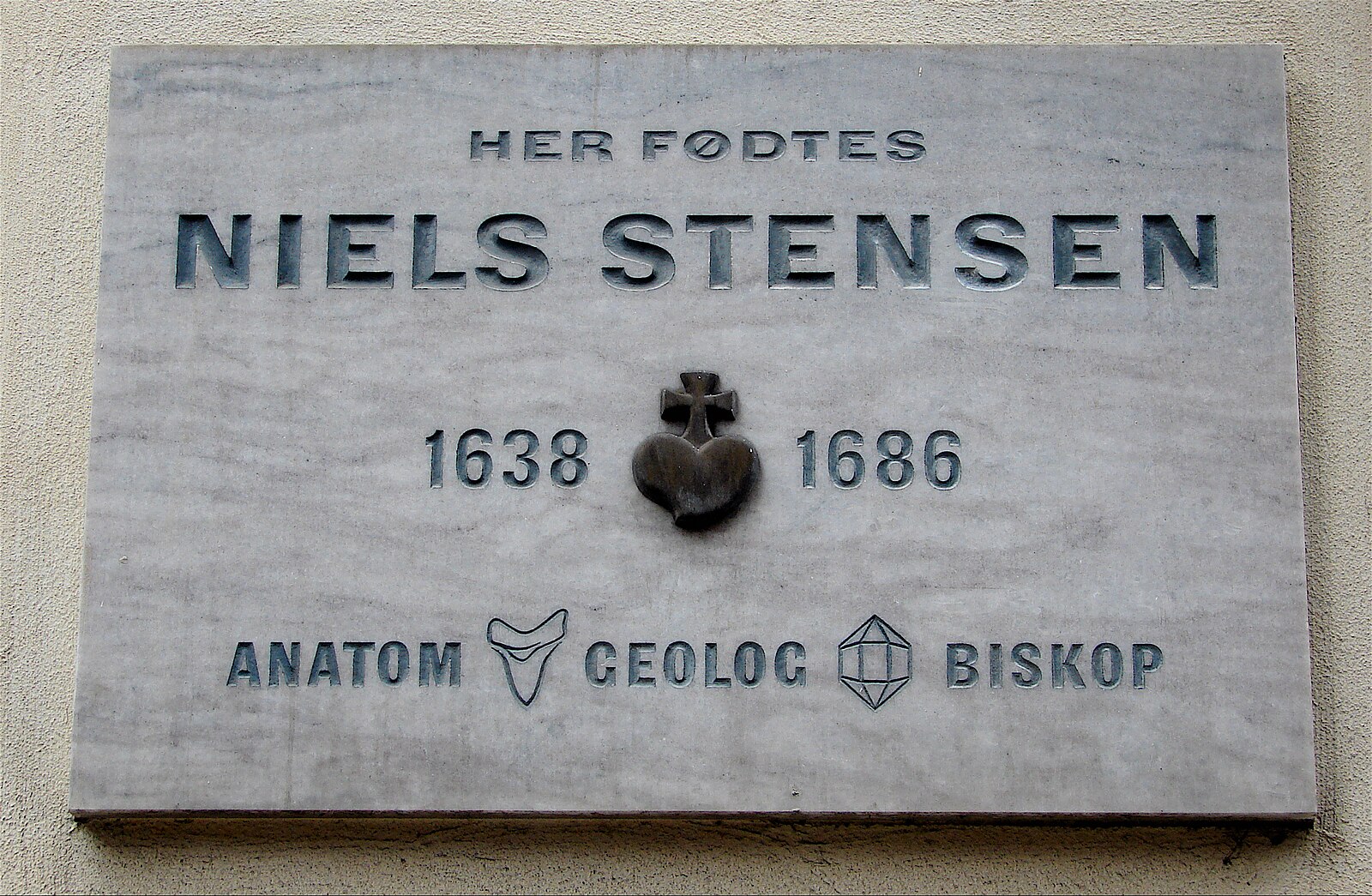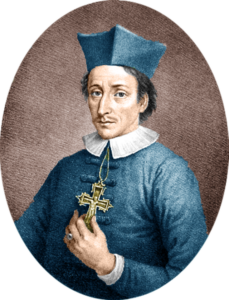
In this season of Advent, as we prepare to celebrate the Incarnation, we are called to quiet down and prepare our hearts to receive Christ anew, to be moved in awe at His presence. We are not asked to do this on blind faith alone. Throughout creation, God has left us signs and wonders of Himself, if only we would take notice.
In his 1998 encyclical, Fides et Ratio, Pope St. John Paul II begins, “Faith and reason are like two wings on which the human spirit rises to the contemplation of truth; and God has placed in the human heart a desire to know the truth…” In our contemplation of the Word along with the created world, we discover the fullness of the truth of Christ. Blessed Nicolas Steno provides a poignant witness of this through his life.
A world-renowned 17th century scientist, Nicolas Steno is known as the father of modern geology, paleontology, and crystallography. Born into a Danish Lutheran family in 1638, Steno’s whole life revolved around scientific research. After receiving his medical degree, he became well known in intellectual circles of the time and landed in Florence, Italy, with the Medici Scholars as their Anatomist at Court. Instead of becoming an obstacle to his faith, Steno’s relentless pursuit of scientific truth laid the foundation for his embrace of the fullness of faith found in the Catholic Church.
Nicolas was dedicated to the use of comparative analysis in his research. It was through this method of inquiry that Steno discovered the heart was a muscle, women have ovaries, glands produce saliva, and eventually, inconsistencies in another scholar’s work on the similarities between shark teeth and fossilized rock formations, which changed the landscape of geology and paleontology. In fact, it was this dedication that gained him close friendships with other scholars on the Medici Court, including Francesco Redi, who would play a pivotal role in Steno’s spiritual journey.
Redi’s shared passion for anatomy and scientific research led to the development of a close friendship as the scholars traveled throughout Italy. While Steno was Lutheran, Redi was a devout Catholic. It is clear their conversations included religion, as Redi reportedly wrote to a priest friend about his hope that Nicolas was close to embracing Catholicism. However, Nicolas was not quite yet ready. When the Medici Scholars returned to Florence, Steno did not join them. Instead, he opted to pursue his newfound interest in fossils and travel throughout Italy to meet other scholars.
Redi’s influence remained strong, however. He asked his friend, Lavinia Arnolfini, and her husband to receive Steno at their palace in Lucca during his visit and help focus his attention. Whether he meant this theologically is not known, but Redi shared enough of their discussions about faith that Lavinia guided her conversations with Nicolas toward religious matters. Though he did not turn his attention to religion right away, Steno was deeply moved by her impassioned plea for him to embrace the Catholic Faith as a matter of life and death.
It was a profound experience later, in June 1667, that would propel Steno into a deep exploration of his religious beliefs. While continuing his research in Livorno and wrestling with “the uncertainty of his soul,” Steno witnessed a Eucharistic procession for the feast of Corpus Christi. “When I saw that host carried in procession with such pomp throughout the city, I felt waking up in my mind these arguments: either that host is a simple piece of bread and silly are those who give so much honor to it, or here is the True Body of Christ and why don’t I honor it too?” This question turned Steno’s attention to a vigorous analysis of religion.
 Nicolas dedicated himself to reading everything there was to read on the matter and met with Lavinia’s confessor for spiritual discussions. While convicted that “the spirit of Truth cannot be the author of opposed churches,” Steno still was not convinced that the true Church was the Catholic Church. Absorbed in information, he encountered something many of our members find on their own journeys— analysis paralysis. His scientific temperament made him wonder if he’d studied deeply enough to make a decision. It was by finally surrendering his need for intellectual certainty to “the totally accepted divine certitude of divine grace,” that Nicolas Steno entered the Catholic Church on November 2, 1667.
Nicolas dedicated himself to reading everything there was to read on the matter and met with Lavinia’s confessor for spiritual discussions. While convicted that “the spirit of Truth cannot be the author of opposed churches,” Steno still was not convinced that the true Church was the Catholic Church. Absorbed in information, he encountered something many of our members find on their own journeys— analysis paralysis. His scientific temperament made him wonder if he’d studied deeply enough to make a decision. It was by finally surrendering his need for intellectual certainty to “the totally accepted divine certitude of divine grace,” that Nicolas Steno entered the Catholic Church on November 2, 1667.
Eventually, Steno was ordained a priest in 1675, and went on to serve as a bishop until his death in 1686, during which time he wrote several theological books and generously served the poor. He was beatified by St. John Paul II in 1988. Nicolas Steno’s journey parallels so many of our members’ experiences with their own “comparative analysis” of faith. Instead of Steno’s seeming hyperfixation on subjects becoming a barrier to deeper faith, it poignantly illustrates the way God weaves the fullness of our person and experiences together to lead us into full communion with Him.
Blessed Nicolas Steno, pray for us!






